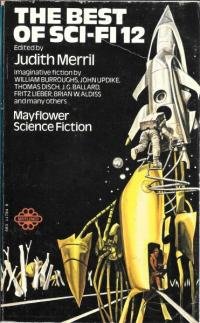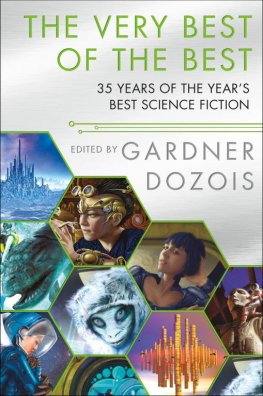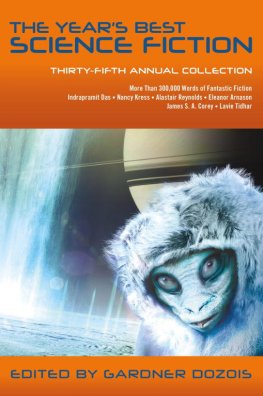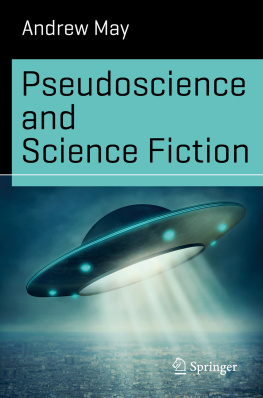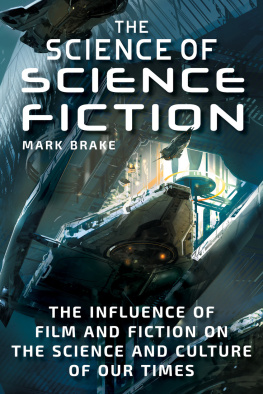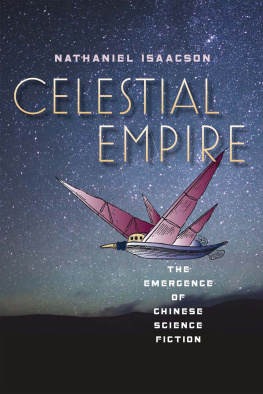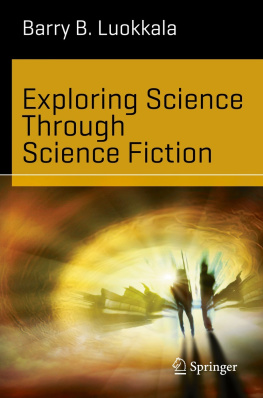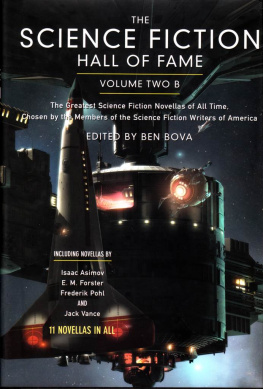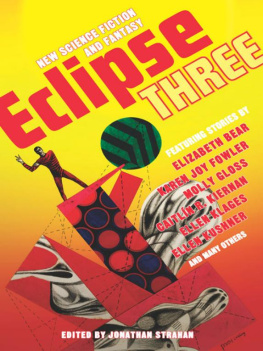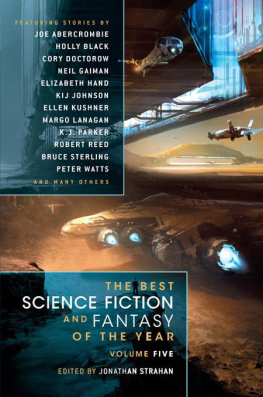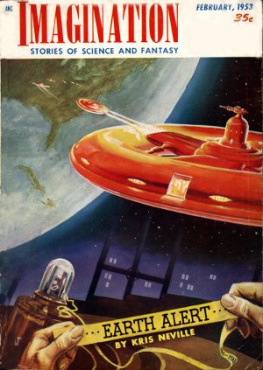The Best of Science Fiction 12
Here you can read online The Best of Science Fiction 12 full text of the book (entire story) in english for free. Download pdf and epub, get meaning, cover and reviews about this ebook. year: 1970, genre: Science fiction. Description of the work, (preface) as well as reviews are available. Best literature library LitArk.com created for fans of good reading and offers a wide selection of genres:
Romance novel
Science fiction
Adventure
Detective
Science
History
Home and family
Prose
Art
Politics
Computer
Non-fiction
Religion
Business
Children
Humor
Choose a favorite category and find really read worthwhile books. Enjoy immersion in the world of imagination, feel the emotions of the characters or learn something new for yourself, make an fascinating discovery.
- Book:The Best of Science Fiction 12
- Author:
- Genre:
- Year:1970
- ISBN:0583117848
- Rating:5 / 5
- Favourites:Add to favourites
- Your mark:
- 100
- 1
- 2
- 3
- 4
- 5
The Best of Science Fiction 12: summary, description and annotation
We offer to read an annotation, description, summary or preface (depends on what the author of the book "The Best of Science Fiction 12" wrote himself). If you haven't found the necessary information about the book — write in the comments, we will try to find it.
Unknown: author's other books
Who wrote The Best of Science Fiction 12? Find out the surname, the name of the author of the book and a list of all author's works by series.
The Best of Science Fiction 12 — read online for free the complete book (whole text) full work
Below is the text of the book, divided by pages. System saving the place of the last page read, allows you to conveniently read the book "The Best of Science Fiction 12" online for free, without having to search again every time where you left off. Put a bookmark, and you can go to the page where you finished reading at any time.
Font size:
Interval:
Bookmark:
The Best of Sci-Fi 12
Edited by Judith Merril
Introduction:
Fish out of Water, Man Beside Himself
Judith Merril
We do not know who discovered water [a small folder. Picture: orange fish against streaks of green and blue.] but it was almost certainly not a fish. [And inside:] Anybody's total surround, or environment, creates a condition of nonperception.
It might have been intended as the essential statement on the motives, mode, and modus operandi of science fiction. Actually, it was an advertisement for a firm of industrial consultants, quoting Marshall McLuhan.
... sudden relevance to contemporary thinking. He orbits in the same system as R. D. Laing and McLuhan ...
That one was from a 'mainstream' London review of The Disaster Area, a collection of stories originally published in the s-f magazines of the fifties, and early sixties.
Well, one has one's little snobberies: best-seller philosophy, pop technology, two-culture professors obviously, McLuhan. But I had just discovered Laing. And Edward Hall, Eduardo Paolozzi, Sagan and Shklovskii, John Barth. And, suddenly, Sgt. Pepper!
Take Sputnik I October 1957 as a not-so-arbitrary dividing line. Until then, the only body of literature seriously attempting to discuss contemporary man (meaning, man in a self-made synthetic environment) was science fiction.
But ... the times they are a changin' ... Dylan and Heller, for a start. Eiseley, Koestler, Fuller, Hoyle. And now: Ornette Coleman, Claes Oldenberg, Ed Emshwiller, Jarry and Borges, Burroughs and Michaux, Vonnegut and (sudden relevance!) Bailord all popping up big, 'in', no longer enclave heroes but cultural phenomena ... getting better all the time ... Okay, so I read McLuhan.
In 1952, Reginald Bretnor wrote a brilliant predictive essay for his critical anthology Modern Science Fiction:
In science fiction, man is the proper study of the writer man, and everything man does and thinks and dreams and everything man builds, and everything of which he may become aware his theories and his things, his quest into the universe, his search into himself, his music and his mathematics and his machines ...
Science fiction's emergence as a genre is rooted in our failure to understand the scientific method and to define it adequately ... This new awareness ... is growing, despite educational conventions which inhibit it, despite a literary convention which almost universally excludes it ...
Eventually, we will again have an integrated literature. It will owe much, artistically, to non-science fiction. But its dominant attitudes and purposes ... will have evolved from those of modern science fiction.
Asturias, Bulgakov, Singer, Nabokov, Martinson, Grass, Cortazar, Transatlantic Review, International Times, Cavalier, Ambit, The Realist, Esquire, Kubrick, Fellini, Lester, Godard, Ralph Nader, Mark Lane, Dr. Spock, Malcom X, The Diggers, Bertrand Russell's War Trials, Ramparts, Report from Iron Mountain, Burgess, Elkin, Updike, Hawkes, Friedman, Calisher, Southern, Landolfi, Martin, Barthelme. What do you read? or read about: The Delphi prediction; RNA memory transfer; moon landings; artificial hearts; multimedia, light shows, psychedelic art: 'God is dead' buttons and badges, 'Reality is a Crutch'. (Some of it is new; some is just starting to happen. Trotsky called it the Theory of Combined and Unequal Development.) I read McLuhan. In 1951, in The Mechanical Bride, he said:
No longer is it possible for modern man, individually or collectively, to live in any exclusive segment of human experience or achieved social pattern. The modern mind, whether in its subconscious collective dream or in its intellectual citadel of vivid awareness is a stage on which is contained and re-enacted the entire experience of the human race. There are no more remote and easy perspectives, either artistic or national ...
The magic that changes moods is not in any mechanism. It is critical vision alone which can mitigate the unimpeded operation of the automatic.
When that was written, 'mainstream' fiction was still strait-jacketed in a 'realism' left over from the certainties of nineteenth century mechanics and pure reason, and the science fictionists were almost alone in their efforts to seek new, remote, enlightening, if difficult, perspectives. Last year another Lit Prof, Robert Scholes, published a book called The Fabulators (Oxford):
The writer who is willing to accept the word as his medium ... must move away from the pseudo-objectivity of realism toward a romance or an irony which will exploit language's distinctly human perspective on life. In competition with the cold and lid-less eye of the cinema the sightless book must turn to the dark world of the imagination, illuminating it by the uniquely human vision to be found in words ...
Fabulation, then, means a return to a ... less realistic and more artistic kind of narrative: more shapely; more evocative; more concerned with ideas and ideals, less concerned with things. I am not proposing here an airy program for the future. I am talking about what is going on all around us.
SF: Speculative Fabulation. A satisfactory solution at last for my abbreviation-in-search-of-an-extension?
'Science fiction' now means many different things to many people; but what it meant that was, for a short time, important is no longer so. Bretnor was right, and the time is now: his 'integrated literature' is 'going on all around us'.
My favourite button-badge says Reality is a Crutch. You will find much 'nonrealism' about 'reality' in this book, and a good bit of 'realism' about 'unreality'; also much more about men, media, and the 'McLuhan Age', among other things.
What they have in common could be called outerness. Maybe what SF really stands for is Space Fish?
The Cinemagicians
Tuli Kupferberg
The cinemagicians created people so real
They were able to walk off the screen
& enter real life.
They all got jobs in television.
Take a word. Take two: The Media. Hollywood and The Networks and MadAve, Time-Life, PR, gold platters (and how presidents get elected). The British sometimes call it Admass. Above and below are two kinds of Media men. Tuli Kupferberg is a Fug. Harvey Jacobs is Public Relations Manager for ABC-TV's (satellite) Worldvision network an Opinion Maker in the Executive Suite of the most assiduously Massaged Medium of them ally a veritable barterer of the Mechanical Bride, a subterranean stimulator, subliminally blowing other-directed minds all the hell over the Total Surround. The astonishing thing about Harvey Jacobs is that he has not allowed his medium to become his message. He does not even wear shades: not even to watch TV. Or movies.
In Seclusion
Harvey Jacobs
Jason Briar and Monica Ploy met on the set of Beowulf and the hairs on him crackled with healthy electricity while she took in air like a vacuum cleaner and held it. He, the handsomest and the most virile; she, the softest and best curved, a vessel brimful of estrogen. "He is the very best," thought she, and "She is the tip-top," thought he. Beowulf was being shot outside London 'where it really happened', so the climate gave them no encouragement. But they needed none.
They became lovers. LOVERS! L*O*V*E*R*S* for themselves, for their fellow players, for the director and the producer and the staff, for the press, the public, for you and I. Their waking lives were gorgeous, working together and all that. To think of them at night running over moors where blue-painted Anglos and Saxons once ran was overwhelming. It was like looking with naked eyes at a fleshy eclipse of the sun, of the moon, of the entire physical universe.
Font size:
Interval:
Bookmark:
Similar books «The Best of Science Fiction 12»
Look at similar books to The Best of Science Fiction 12. We have selected literature similar in name and meaning in the hope of providing readers with more options to find new, interesting, not yet read works.
Discussion, reviews of the book The Best of Science Fiction 12 and just readers' own opinions. Leave your comments, write what you think about the work, its meaning or the main characters. Specify what exactly you liked and what you didn't like, and why you think so.

